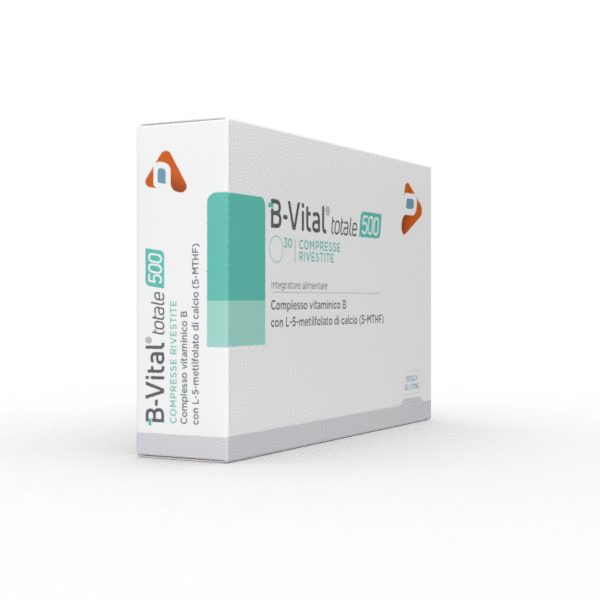Homocysteine is an amino acid produced by the body through the metabolism of methionine, in turn, an essential amino acid that the human body is not able to synthesize and which therefore must be introduced through a rich protein diet. Normally the blood levels of homocysteine in individuals are low because as soon as it is formed it is immediately converted by some enzymes and by vitamins B6, B9 and B12. On the contrary, in the presence of folic acid and Vitamin B12 and B6 deficiency, or of the reduced enzymatic activity of methylentetrahydro-folate (MTHFR), an accumulation of homocysteine occurs, a situation that may increase the risk of cardiovascular issues. It is therefore very important to keep the concentration of homocysteine in the blood under control and to ensure that the values are always below the threshold. The increase in the concentration of homocysteine (hyperhomocysteinemia) may also occur for other reasons, for example during the course of diseases such as renal failure, hypothyroidism, intakes of certain drugs, etc. In all these cases, it is essential to remember that high doses of this amino acid can cause direct and indirect damage to the blood vessel wall, exposing the patient to a high risk of cardiovascular disease.
How is it possible to lower the level of homocysteine in the blood? Making sure that the values of the B vitamins are always the correct ones since it is these vitamins that keep homocysteine within the normal parameters. Naturally, nutrition is the first point to be taken care of: a balanced diet, where proteins are not lacking, is able to ensure the right dose of B vitamins. But if nutrition is not sufficient to correct any deficiencies, it can resort to integration.


